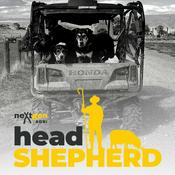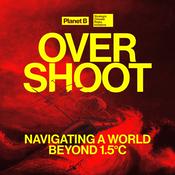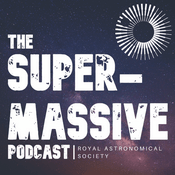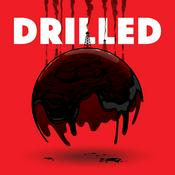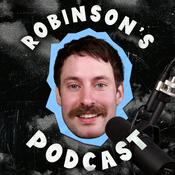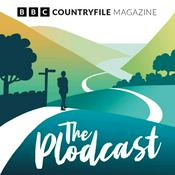Sustainable World Radio- Ecology and Permaculture Podcast
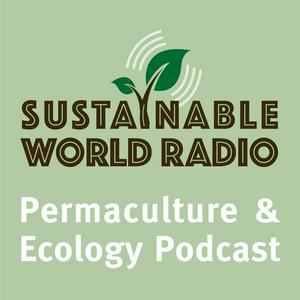
169 episodes

Life Design and Cultivation
03/12/2023 | 1h 11 mins.
In this stimulating conversation with Regenerative Land Designer and Educator Javan Bernakevitch, we discuss life design and why it's important. According to Javan, if we don't design our lives, someone else will. What are the signs of an undesigned life? Some of them include: not knowing what you're good at, a lack of direction, being directed by past events, problems saying no, and having a hard time making decisions. In this interview, we talk about practicing values-based decision making and the impact that can have on taking charge of our time and prioritizing what's most important to us. Don't worry, if you're unclear about your values, Javan gives tips on how to discover them! Since 2013, Javan has worked with individuals providing assistance on life design and how to design your life to work with, not against, your nature. Javan Bernakevitch is the founder and operator of Permaculture BC, an education and community hub in British Columbia, Canada. The principle consultant at All Points Land Design, Javan works on small to large scale landscapes. For information on Javan and his work visit: All Points Design.ca and PermacultureBC.com. I interviewed Javan about Spilanthes for my Plant Report podcast a few years ago. You can listen here.

Cultivating Seeds of Regeneration at Beejvan
08/9/2023 | 43 mins.
Join us on a journey to India to explore the inspiring Beejvan project, a remarkable two acre demonstration farm and community-based initiative in Karjat, Maharashtra, India. In this interview with co-founder Sanjana Krishnan, discover how Beejvan is revitalizing the land, promoting biodiversity, and empowering the local community. Sanjana was inspired to start Beejvan when she returned to Karjat a, a place she had loved as a child, to find that the rivers had dried up, soils were depleted, the forest was mostly gone, and that local farmers were suffering. Sanjana then made it her mission to repair what has been broken through Beejvan, a farmer-led project dedicated to seed saving, land regeneration, ethnobotany, reforestation, and holistic agriculture practices. An integral part of Beejvan is working closely with the local inhabitants of Karjat, the Thakars who are traditional herbalists, healers, and keepers of sacred groves. Get ready to be inspired by this incredible story of hope and renewal and find out how you can help grow this beautiful project. To read more about Beejvan, visit them at: https://springprize.org/shortlisted/beejvan/ You can also follow them on Instagram at: https://www.instagram.com/beejvan/ More on Sanjana: Sanjana Krishnan is a Political Sociologist with a passion for regeneration. Her work focuses on the potential and impact of local initiatives in dealing with socio-environmental concerns for India. She is the cofounder of the Beejvan Biodiversity and Collaborative Research Foundation. Sanjana has worked/volunteered with a range of conservation/permaculture projects across India and Germany. A winner of the Erasmus scholarship, UGC Ph.D. Fellowship, and the German Chancellors' Fellowship, Sanjana has a Master's in Rural Development and a Ph.D. in Political Science. Beejvan recently won a Lush Spring Prize for Intentional Projects. The Lush Spring Prize honors those who repair the earth's damaged systems and leave the world lusher than they found it. For more information and to see if your project is eligible for a prize, visit: SpringPrize.org.

Permaculture for Our Changing World
03/6/2023 | 1h 16 mins.
Episode 169: Is Permaculture the best option that we have to meet the demands of an unpredictable future? In this lively conversation with Rosemary Morrow, Margie Bushman, and Wes Roe, we discuss the potential Permaculture holds in restoring degraded ecosystems around the globe. Rosemary Morrow is a Permaculture designer, teacher, and earth restorer. She is the author of numerous publications including Permaculture Teaching Matters and The Earth Restorer's Guide to Permaculture. Rosemary is the co-founder of the Blue Mountains Permaculture Institute and Permaculture for Refugees. We hear about Rosemary's work in places she calls crowded margins- including refugee camps and areas greatly impacted by climate change. We learn why Rosemary still believes that Permaculture is the most valuable tool we have to in Earth restoration. We chat about the importance of the Permaculture ethics (Earth Care, People Care, Fair Share), some of the challenges of Permaculture, and the biggest misconceptions people have about Permaculture design. Margie Bushman and Wes Roe are the co-founders of the educational nonprofit the Santa Barbara Permaculture Network and founding Board Members of the Friends of the International Permaculture Convergences (FIPC). Enter Our Giveaway from June 2nd to June 9th, 2023! Visit: https://melliodora.com/melliodora-giveaways/earth-restorers-guide-to-permaculture-giveaway-swr/ I've partnered with Melliodora Publishing to give away a copy of Rosemary Morrow's incredible new Earth Restorer's Guide to Permaculture PLUS a collection of other titles from the ethical publishing house:h Earth Restorer's Guide to Permaculture by Rosemary Morrow 470 a novel by Linda Woodrow Permaculture Pioneers: stories from a new frontier edited by Kerry Dawborn and Caroline Smith Our Street (Retrosuburbia for Kids) by Beck Lowe and David Holmgren 2023 Permaculture Calendar, curated by Permaculture Principles Open to listeners in Australia and the U.S. only due to shipping purposes. There will one winner (of the entire book pack) who will be chosen at random and notified by email. Good luck! Links: Permaculture for Refugees Blue Mountains Permaculture Institute Melliodora Publishing SB Permaculture Network

Water Always Wins- Slow Water Solutions for Drought and Deluge
25/1/2023 | 53 mins.
What does water want? What happens when we allow water to be water? Author Erica Gies explores the concept of Slow Water in her new book Water Always Wins: Thriving in an Age of Drought and Deluge. Slow Water approaches are unique to each place and work with natural systems. Slow Water is key to greater resiliency and offers multiple benefits including reducing floods, droughts, and wildfires. The Slow Water movement asks where our water comes from and examines the impact that our water treatment methods have on the environment, other people, and animals. In this episode, Erica talks about Slow Water projects around the world and what happens when water is allowed to slowly flow, meander, and linger on the landscape. We discuss the indigenous view of water as a "who," a relative, and a being worthy of respect and compare it with the industrial idea of water as a commodity or a threat. We discuss how this skewed modern world view affects our relations with water, influences how we build our infrastructure, and imperils life on the planet. Water has critical relationships with creatures, insects, plants, microbes, rocks, and soil. Many animals including water voles, prairie dogs, and the rock star of the water world, beavers can be our allies in the Slow Water movement. Wetlands, bogs, and marshes are also allies when it comes to slowing water and sinking excess atmospheric carbon. Peat is the super sinker of CO2- covering only 3% of the earth and holding 30% of the soil carbon. Wetlands restoration is a powerful climate change mitigation tool and asset to the Slow Water movement. Have you heard of the Hyporheic Zone, also called the "Liver of the River?" This ecotone found in rivers and streams is a hidden universe rich in biodiversity, fertility, and action. Erica shares a story about a Hyporheic Zone restoration project in Seattle that is having profound impacts on water quality and stream health. It is becoming increasingly obvious that our attempts to control water are failing. Our cities and concrete infrastructure speed water away as quickly as possible, yet water seems to be reclaiming its territory more frequently. By participating in the Slow Water movement, we can cooperate with nature and water to create a more abundant world for all. Erica Gies is the author of the new book Water Always Wins- Thriving in an Age of Drought and Deluge. Erica is a National Geographic Explorer and an award-winning independent journalist who writes about water, climate change, plants, and critters for The New York Times, Nature, The Atlantic, and many other publications. Erica cofounded two environmental news startups, Climate Confidential and This Week in Earth. You can find Erica online at: EricaGies.com and SlowWater.world/

Gardening Like Nature
13/9/2022 | 55 mins.
Learn how to garden like nature from writer, horticultural consultant, and educator Dr. Lee Reich. We start with an audio tour of Lee's award winning "farmden," which is more than a garden and less than a farm. Packed with plants, including Paw Paws, Hardy Kiwi, Gooseberries, Figs, and Filberts, Lee uses his land as a test site for showcasing his gardening techniques. After 40 years of tending the land, Lee not only grows healthy fruits and vegetables, but also lots of fertile soil and compost. Lee and I discuss the art and science of building soil from the ground up following his easy low impact approach. Lee explains why he believes it's important to pay attention to the top few inches of soil and let nature take care of the rest. Lee advocates gardening like nature by using a system that's good for plants and people and that emulates natural conditions. We chat about mulch, the importance of compost, and why Lee loves to repurpose what others might call waste in his quest to improve soil fertility and grow vibrant and resilient plants. Dr. Lee Reich is a writer, horticultural consultant and educator with graduate degrees in soil science and horticulture. Lee's farmden has won awards from National Gardening and Organic Gardening magazines and has been featured in many publications like the New York Times and Martha Stewart Living. HIs books include Weedless Gardening, Uncommon Fruits for Every Garden, and Growing Figs in Cold Climates. Lee was a former plant and soil researcher for the US Department of Agriculture and Cornell University and wrote a syndicated gardening column for the Associated Press for nearly 30 years. Learn more about Lee and his work at leereich.com
More Science podcasts
Trending Science podcasts
About Sustainable World Radio- Ecology and Permaculture Podcast
Listen to Sustainable World Radio- Ecology and Permaculture Podcast, Radiolab and many other podcasts from around the world with the radio.net app

Get the free radio.net app
- Stations and podcasts to bookmark
- Stream via Wi-Fi or Bluetooth
- Supports Carplay & Android Auto
- Many other app features
Get the free radio.net app
- Stations and podcasts to bookmark
- Stream via Wi-Fi or Bluetooth
- Supports Carplay & Android Auto
- Many other app features


Sustainable World Radio- Ecology and Permaculture Podcast
download the app,
start listening.













